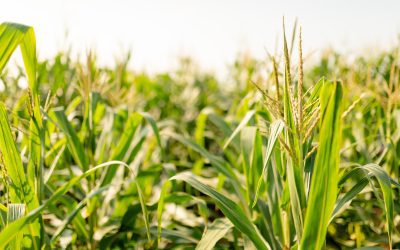Pesticide and herbicide registrations
On Jan. 11, the EPA announced new seven-year registrations for Enlist and Enlist Duo herbicides for overthe-top use on herbicide-tolerant soybeans, corn, and cotton. This re-registration is very timely, as both previous five-year registrations were set to expire in January 2022.
ASA President Brad Doyle, a farmer from Weiner, Ark., voiced cautious optimism regarding EPA’s decision. “Enlist is a vital tool for soybean growers to protect their crops from damaging weeds and maintain important conservation practices. While we are cautious with reports of new restrictions on Enlist and will be carefully reviewing the registration in the days ahead to determine its impact on growers, a new registration for Enlist is a welcome announcement.”
While this news is positive for growers, the new registrations come with several new Endangered Species Act (ESA) use restrictions aimed primarily at mitigating runoff and pollinator risks. The registration also includes prohibitions on using Enlist or Enlist Duo in certain counties where ESA risks are significant.
On the same day as the Enlist announcement, EPA revealed it will immediately be revising its Endangered Species Act (ESA) processes for all new pesticide active ingredients (AI). The reform will incorporate ESA assessments and implement any necessary mitigations to prevent species and critical habitat from being jeopardized at the beginning of the registration process. Soybean growers are hopeful that this will increase the legal defensibility of pesticide registration decisions that have been under intense pressure from courts for failing to comply with ESA.

The American Soybean Association supports maintaining science, risk-based processes for consideration of pesticides and environmental issues by EPA. Pesticides are important for protecting farmers’ operations from billions of dollars in damages annually from weeds, insects, and other pests.
Renewable Fuels Standard
On Jan. 28 EPA finalized a rule that pushes the deadline for oil refiners to comply with 2020 and 2021 blending requirements under the Renewable Fuel Standard (RFS), which the agency previously extended in April.
The agency last delayed compliance deadline reporting for small refineries to Jan. 1, 2022, saying the delay was a result of not having released RVOs for 2020, 2021, and 2022. Now, the EPA final rule states small refineries have until the next quarterly reporting deadline after the 2021 quotas are established to fulfill them.
Overall, for all refineries and importers of fuel, the new compliance deadlines for 2022 targets will be the RFS quarterly reporting deadline after the 2023 standards effective date or the 2021 compliance reporting deadline – whichever date is later.
The RFS has reduced U.S. dependence on foreign oil, lowered fuel prices at the pump, reduced greenhouse gas emissions and added value by increasing demand for the soybeans and corn our farmers produce. Biodiesel and renewable diesel provide a valuable market for more than 9 billion pounds of soybean oil, adding more than $1.10 in value to every bushel of soybeans grown in the U.S.
EPA is currently undergoing a rulemaking process to update Renewable Volume Obligations for 2020, 2021, and 2022. The proposed rule would increase the 2022 RVO for biomass-based diesel—a move that ASA strongly supports.



